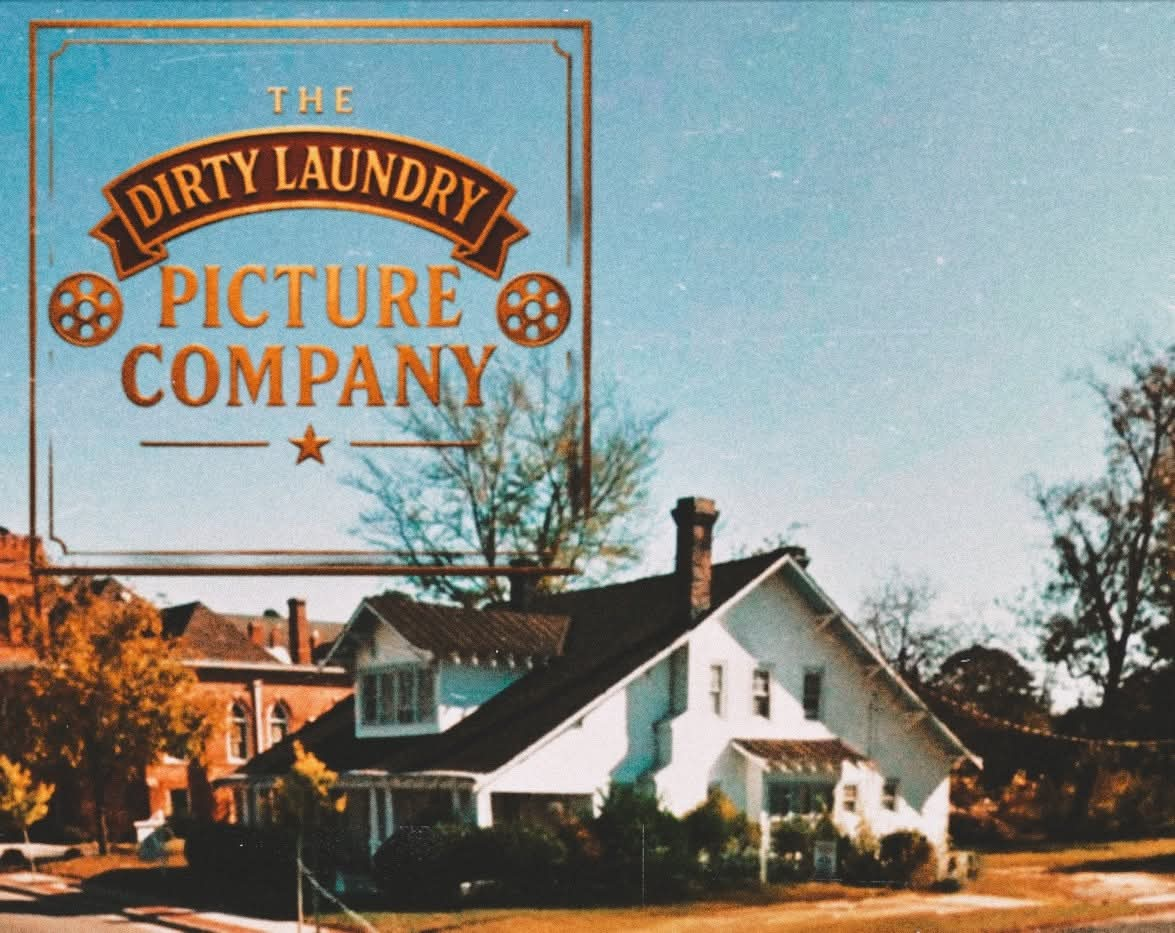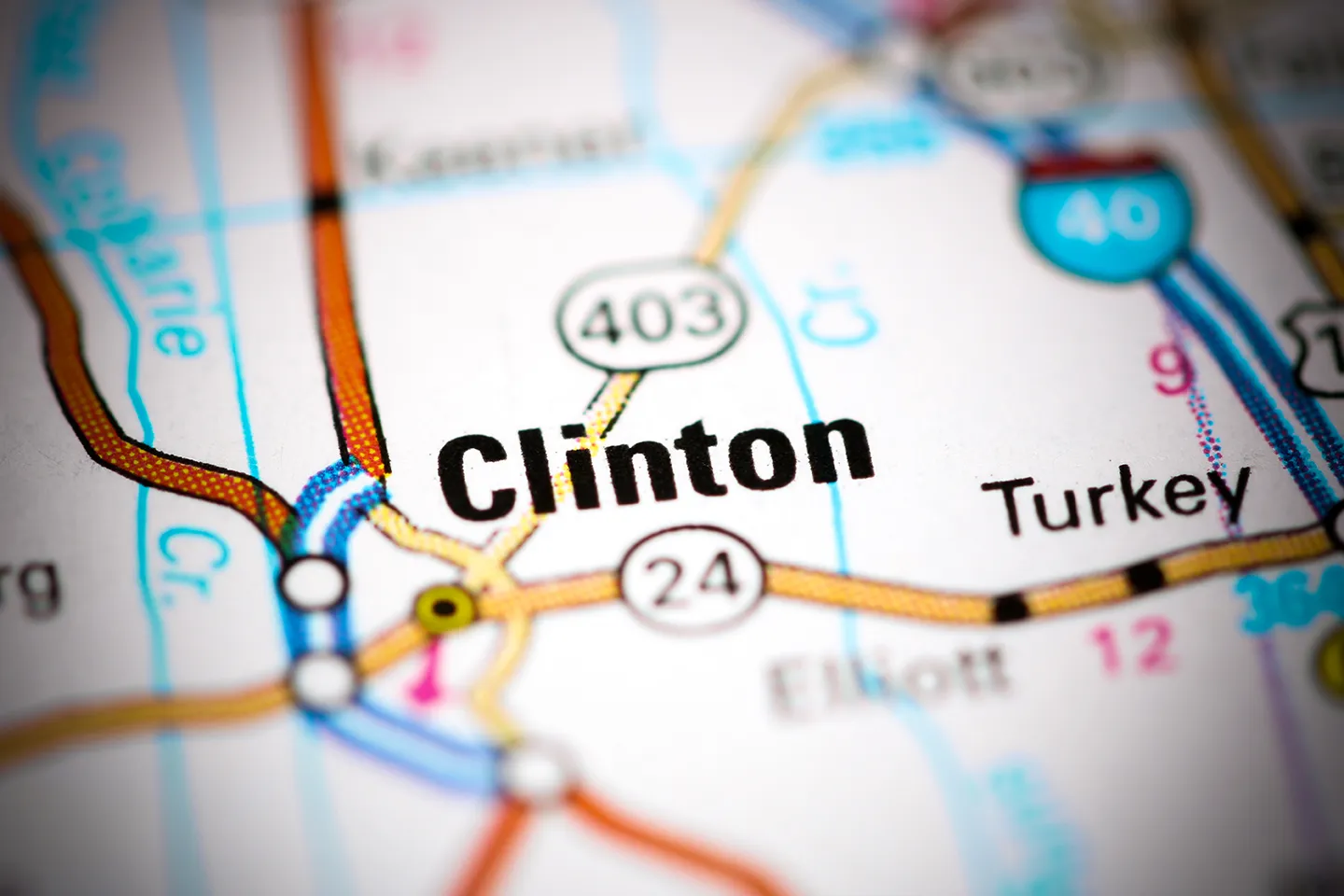There’s something about the work that happens in places no one’s watching. No press cycles, no industry buzz, just someone building something real while everyone else looks somewhere else. That’s what’s happening in Clinton, North Carolina right now, and most people have no idea.
Monty Hobbs spent two decades working his way from production assistant to executive producer on shows like Warner Bros.’ One Tree Hill. He’s launched original IP that’s won Telly Awards and landed on streaming platforms. But what he’s doing now in Clinton isn’t about making another show. It’s about building the infrastructure to make shows, own IP, and create an economy around media production in a place most people wouldn’t think to look.
Clinton has 8,500 people. Hobbs isn’t there to reminisce. “Clinton represents every overlooked American town people counted out,” he says. “I came back to build industry, not nostalgia.”

Here’s what that looks like on the ground. Hobbs runs Dirty Laundry Picture Company, his production and IP development hub. He’s a 50/50 partner in Balabushka, the legacy billiards cue brand that’s been around since the 1950s, where he handles licensing. He’s developing Grace The Table, a culinary and cue culture series hosted by world champion pool player Allison Fisher. There’s also Secrets of Sampson, a docu-series he’s producing with Chad Thompson and Anthony Davis, shot by director of photography David Pascua, with Bill Hobbs on editing and post.
What’s interesting isn’t just the slate. It’s that Hobbs has already secured physical properties in Clinton and activated them. He’s not pitching a vision. He’s operating.
The results so far are tangible. One campaign pulled 650,000-plus organic reach in under 30 days without major ad spend. He’s got 17 confirmed network and streaming platform connections across his catalog. National talent is already involved: Erik Estrada, Allison Fisher, Wendy Kaufman, Gloria Gaynor. That’s not typical for a production operation in a small North Carolina town.

Hobbs is clear that Clinton isn’t the endgame. “This is phase one,” he says. “Clinton is proof of what’s possible, not the final location. We’re building a scalable model for American storytelling and industry revival that can be replicated nationwide.”
That’s the pitch, and it’s not unreasonable. Small towns across the country have lost industry, and media production is portable in ways manufacturing isn’t. You need crew, locations, and infrastructure, but you don’t need to be in a major market to produce content that ends up on major platforms. Hobbs is betting he can create a pipeline that trains local talent, generates tourism and events, and keeps dollars circulating locally instead of extracting them.
It’s worth watching because it’s addressing a real gap. There’s plenty of content being made, but most production economies are concentrated in a handful of cities. If Hobbs can prove the model works in Clinton, with measurable outcomes like platform deals and sustainable revenue, it becomes replicable. That’s different from just shooting a project on location and leaving.

The cue brand partnership is smart. Balabushka has heritage and recognition in the billiards world, which gives Hobbs a licensing and merchandising base that isn’t dependent on any single project succeeding. Grace The Table ties that world into content, and Allison Fisher brings credibility. It’s not just making a show about pool. It’s building a business around the culture of it.
Hobbs talks about this as “industry, not content.” The distinction matters. Content is a single project. Industry is repeatable infrastructure. He’s building the latter. Whether it scales the way he’s planning remains to be seen, but the early indicators suggest people are paying attention. You don’t get national talent and streaming platform interest without something working.
Clinton is the test case. If Hobbs pulls this off, it changes the conversation about where media production happens and who gets to participate in it. The properties are real. The partnerships are real. The platform connections are real. Now it’s about execution and whether the model can sustain itself and expand.

What Hobbs is doing in Clinton won’t make headlines the way a flashy LA deal would. That’s probably the point. The work that actually changes things rarely happens where everyone’s already looking. It happens in towns people stopped betting on, built by people who decided the smart move wasn’t chasing what everyone else was chasing. Clinton isn’t the story because it’s sentimental. It’s the story because it might actually work. And if it does, Hobbs won’t be the only one doing it quietly somewhere no one expected.












